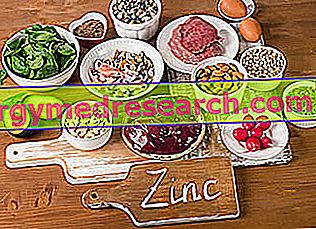
In the hot summer months the diet should satisfy the needs of the body linked to the increased dissipation of body heat.
Since the increased sweating is the most effective defense against excess environmental heat, the summer diet should be particularly attentive to the contribution of:
- water : the sweat contains mainly water (98-99%) and it is therefore clear that the increased sweating requires a greater water supply with the diet. The amount of perspiration depends on the temperature and the ambient humidity, but also on the solar radiation, the clothing and the level of physical activity of the subject. It is therefore impossible to provide advice on the ideal water supply in the summer months; in general, however, it may be recommended to drink at least one and a half liters of water per day. With regard to water quality, during the summer months it would be advisable to put aside the much-advertised minimally mineralized mineral waters, to prefer those rich in minerals (in order to make up for the increased salt requirements).
- mineral salts : sweat contains small amounts of mineral salts, mainly sodium, potassium and chlorine. Especially in response to the first warm days of the season, when the acclimatization process is not yet complete, the loss of mineral salts with sweating can be significant. In general, however, a balanced diet very well covers the body's need for mineral salts. Any supplements can be justified only in the event of food imbalances or profuse sweating (such as that which characterizes endurance sports in the summer months).
The summer diet should also be preferred:
- food that is easy to digest : meals that are too heavy require large amounts of blood to sustain long digestive processes; this reduces the blood flow in the blood, which is very important for the dispersion of body heat. Go ahead, therefore, to fruit, vegetables and salads of cereals; red light for fries, braised meats, dips, grilled fat meat and other foods rich in fat;
- seasonal foods : as always, generous consumption of seasonal fruits and vegetables is recommended, due to the higher intake of vitamins and minerals (and also for the lower cost) compared to off-season counterparts. Fruits and vegetables are also important for the supply of water, which on average accounts for 85-90% of the weight of these foods.



